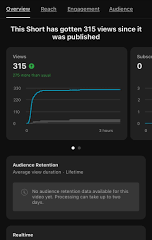Rumble: A Prominent Player in the Video Sharing Landscape

Introduction
As the digital world evolves, video sharing platforms have become essential for content creators and viewers alike. Among these platforms, Rumble has gained significant traction, particularly as users seek alternatives to mainstream video services. Understanding Rumble’s growth and its relevance in the current media landscape is crucial for both creators and consumers navigating this dynamic environment.
The Rise of Rumble
Founded in 2013, Rumble originally catered to independent content creators wishing to monetize their videos. However, it has recently surged in popularity, especially among users frustrated with the policies and censorship practices of larger platforms like YouTube. According to recent statistics, Rumble’s user base has more than doubled in the past year, drawing significant attention due to its commitment to free speech and creator monetization.
Key Features and Growth Strategies
Rumble offers unique features that appeal to both creators and viewers. Its straightforward monetization system allows content creators to earn revenue through ads more efficiently than on competing platforms. Additionally, Rumble’s commitment to protecting users’ freedom of expression has made it a refuge for many seeking fewer restrictions. Recent partnerships with conservative figures and organizations have further propelled the platform’s visibility.
Impact on Content Creation
The rise of Rumble signifies a shift in the video-sharing paradigm. Many content creators are now diversifying their presence across multiple platforms to reach a broader audience and ensure a stable income. This trend has implications for the content landscape, as users increasingly prioritize platforms that align with their values. Furthermore, Rumble’s growing cachet introduces more diversity in content, allowing underrepresented voices greater visibility.
Conclusion
Rumble’s emergence as a vital player in the video sharing market underscores a broader trend toward platforms emphasizing user freedom and monetization opportunities. In a digital ecosystem increasingly dictated by a handful of dominant entities, Rumble represents an alternative for creators and consumers alike. As it continues to grow, it will be interesting to observe how Rumble influences content creation norms and competition among video-sharing platforms. For content creators and consumers looking to engage with a platform that encourages diversity and expression, Rumble presents a promising avenue.





